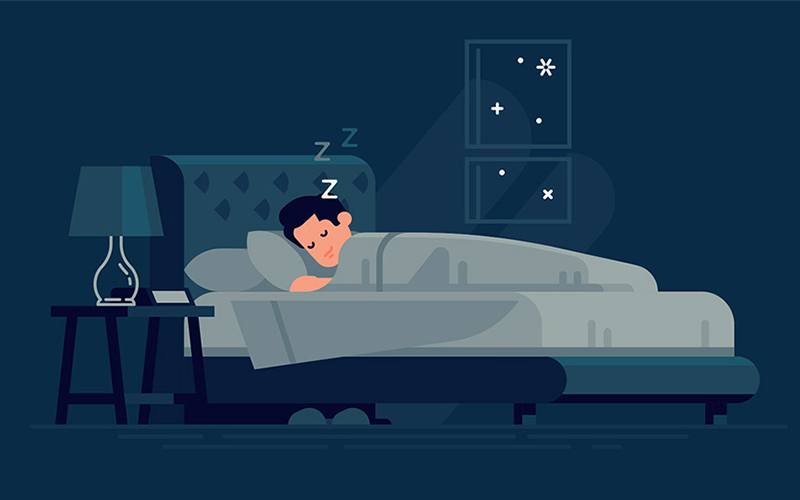Can sleep create an Impact on Mental Health?

The relationship between sleep and mental health is complex and operates in two directions. Mental health conditions can either instigate or exacerbate sleep issues, and conversely, sleep problems can worsen mental health conditions. Even individuals without diagnosed disorders may feel the psychological impact of insufficient sleep. Sleep deprivation often leads to heightened irritability, emotional instability, and can exacerbate symptoms of depression, anxiety, and even thoughts of self-harm.
Potential consequences of sleep deprivation on mental health:
Anxiety and stress
The link between sleep deprivation and anxiety is evident, with a considerable proportion of individuals diagnosed with generalized anxiety disorder also experiencing sleep problems. Poor sleep quality can elevate stress hormones, leading to increased cortisol levels, affecting the ability to fall and stay asleep.
Mood disorders
The connection between sleep and mental health, particularly depression, is robust. Research indicates that approximately 90% of individuals with major depressive disorder experience difficulties with sleep. Moreover, those with bipolar disorder often face hypersomnia during depressive episodes and insomnia during manic episodes. The quality and duration of REM sleep also differ between depressed and non-depressed individuals.
Psychosis
Severe sleep deprivation can induce psychotic symptoms, such as paranoid thoughts and hallucinations, even in those without prior mental health issues. Individuals with schizophrenia often report disrupted sleep patterns before experiencing psychotic episodes.
Suicide risk
Sleep disturbances, especially nightmares, are linked to a higher likelihood of experiencing suicidal thoughts or attempts. Recognizing this connection, sleep issues have been identified as a warning sign for suicide
Other mental Illnesses
Sleep disturbances are interconnected with conditions like post-traumatic stress disorder (PTSD) and attention-deficit/hyperactivity disorder (ADHD). Sleep issues post-trauma can intensify symptoms, while ADHD is frequently associated with hypersomnia or insomnia. Children and teenagers with sleep problems are also more prone to anxiety, depression, and low self-esteem.
In conclusion, the intricate relationship between sleep and mental health is undeniable, operating in a bidirectional manner. Sleep disruptions can significantly impact mental health, triggering or worsening various conditions like anxiety, mood disorders, psychosis, and increasing the risk of suicidal thoughts. Conversely, mental health conditions can lead to sleep disturbances, creating a challenging cycle. Understanding these connections underscores the crucial role of quality sleep in maintaining optimal mental well-being. Addressing sleep issues through effective strategies, including sleep hygiene practices, therapeutic interventions, and seeking professional guidance, holds promise in positively influencing both sleep quality and mental health outcomes. Recognizing the significance of restful sleep in mental wellness remains pivotal, emphasizing the need for tailored approaches to mitigate sleep-related challenges and foster improved mental health overall.








